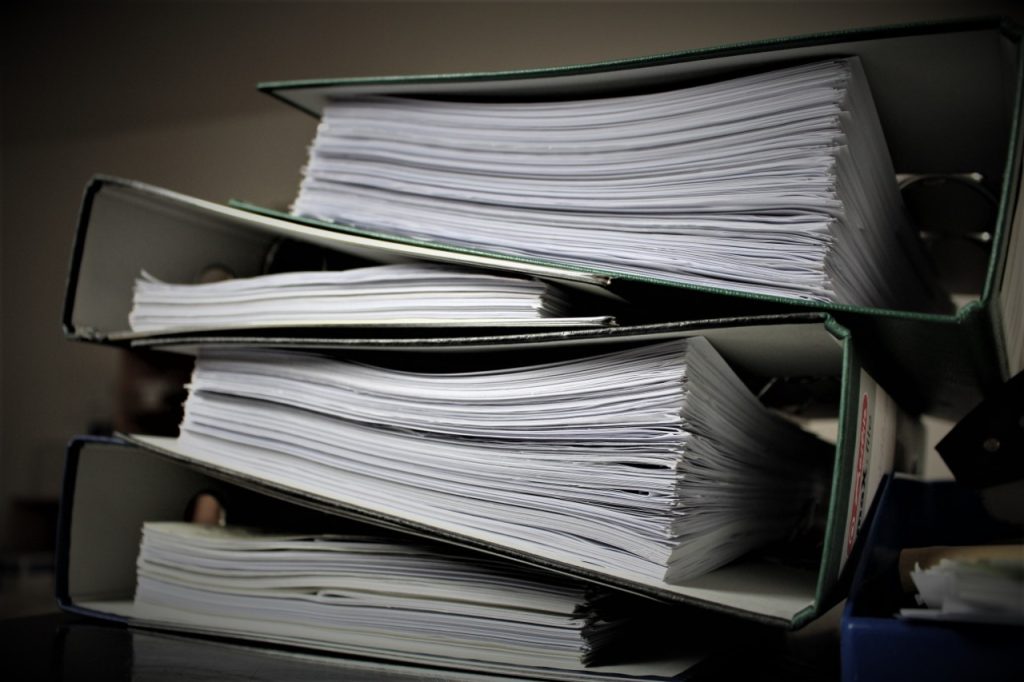Discard tax documents before the retention period ends and you could be in trouble with the GRA.
But you must confront your paper mountain that is taking up much-needed space. Before you do that, read on.
What are tax documents?
A tax document provides information to help the GRA to assess your tax. Examples of these documents are:
- Tax returns for the different taxes – VAT, income tax, petroleum income tax, mineral royalties, communication service tax, etc.
- Receipts, vouchers, contracts, bank statement, financial statements
- Other documents that explain or provide evidence to support income, expenses and reliefs.
How long must you keep them?
You must keep hard and soft copies of the tax documents for at least six years from the document creation or filing date. You may have to keep the documents for longer than six years in these circumstances:
- Objections or appeals – you must keep the relevant documents until GRA decides.
- You should keep documents relevant to a pending application until GRA decides.
- Refund of excess tax paid – hold relevant documents until the refund is determined.
- Investigations – When you receive notice that the GRA will investigate you, you must keep documents relevant to the investigation until it is over.
Penalty
You will pay a penalty if you don’t keep the tax documents for the retention period. If the GRA judges your failure to keep the tax document as willful, the penalty is seventy-five percent of the tax for the period.
Otherwise you will pay the lower of two hundred and fifty cedis and seventy-five percent of the tax for the period.
Document retention policy
A document retention policy sets rules for holding documents. Your employees must abide by these regulations. Use one to control when to discard tax documents.
Digitize documents
You can scan and store large volumes of paper. Modern IT tools make this a cost-effective solution. It saves space and solves the retention problem.
Using ITaPS, an online app for filing tax documents, can be a partial solution to the storage and retention problem.
Take away:
- You must keep documents relating to your financial transactions for 6 years, and in certain cases longer.
- A document retention policy can help you control disposal of documents, and ensure that you do not destroy them in their retention period.
- Scan and store your documents, it can solve your paper problems and help you keep your documents for your retention period.
To discuss retention and other tax problems contact us at in**@*****om.gh or visit georgekatakdev.wpengine.com.

